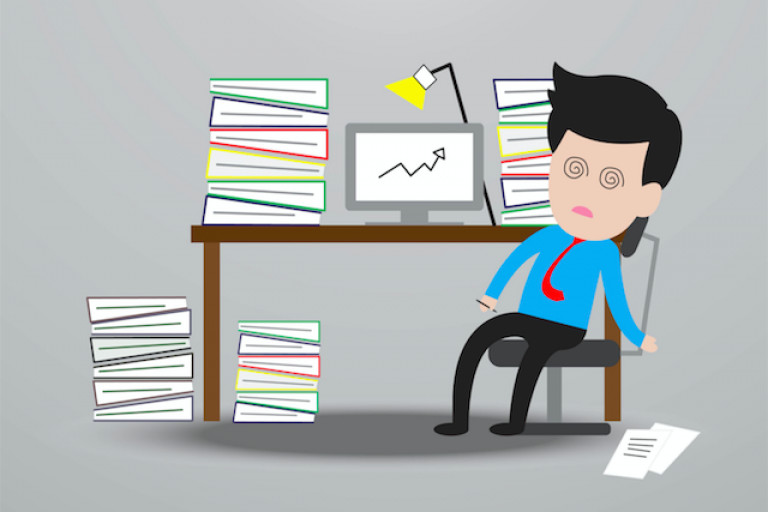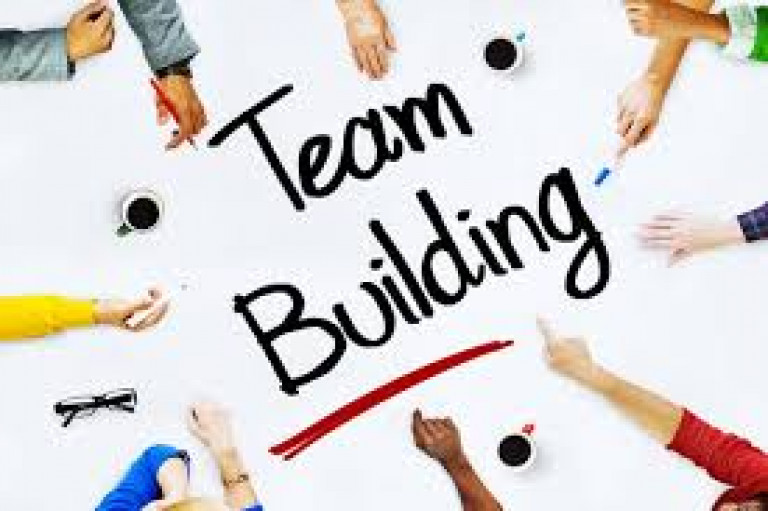
In a job interview, a potential employer will want to know your working style most of the time. This helps them assess if you're a good match for the company and if you'll fill the job role well. Are you a leader? Are you a team player? Do you look at the bigger picture like other big-picture thinkers? Or, are you a small detail-focused person?
These questions are just some examples that an interviewer might ask to determine different work styles. Sometimes these questions can be daunting in interviews, but it’s not designed to trip you up. Employers genuinely want to know how you perform best, and how you prefer to work, so they can fit you into a team and keep you, and other employees happy.
Your independent working style can be totally different from someone else’s; some people are profusely organized, some people are spontaneous, others work well alone whilst others thrive in large teams. The budding question that many people have is ‘what is my preferred work style’? This article is here to help you figure that out.
Your individual and personal work style is made up of multiple things such as: how you structure your day, how you prioritize tasks, how well you take direction, and how you communicate (and many more things). Here are some open-ended questions that may help you establish the basis of your work style:
Do you like working collaboratively or alone?
When at work, are you empowered by the idea of working in a huge team, or do you dread the days when you have to work in these teams?
Neither one of these work style preferences is better than the other, but it may affect what type of jobs you should apply for. In theory, if you absolutely hate working with other people, then you may be an introvert. This is not a bad thing, but it may hinder your performance in a company focused solely on sociable group work. If you hate working with others, apply for more solo jobs, or jobs in smaller teams - these employers will love your work style and you’ll be happier as you fit in with other team members.
Likewise, if you adore working in a big bubbly team, you’re most likely an extrovert; which again, has its strengths and weaknesses. You should consider this when applying for jobs; you probably won’t enjoy working in a small company that is focused on solo work but you will excel in a large company with big teams and lots of interaction.
The best way to answer this in an interview is to be honest, but it is important to highlight that you can work collaboratively for instance by saying “I do prefer to work alone but I am always willing to work occasionally in teams and I’m always happy to help others”.
At the end of the day, there’s no point lying about this one. If you think the employers want you to work in large teams and you hate big teams, find another job. It’s only you who will end up unhappy.

How do you prefer to communicate?
You may have noticed in recent years that communication at work is increasingly being done instant messaging services, such as Slack or Google Hangout. The times of face-to-face meetings, video calls or phone calls are starting to fade away and technology is taking over.
However, with this being said, although most companies will use some form of instant messaging or online communication service, they still want to know how you would actually like to communicate. Do you prefer to use phone calls, emails, instant messaging, online video calls, or meeting face-to-face? Of course, meeting in person is the most preferable but in the modern world, it isn’t always possible. Say which one you prefer, and then consider saying that you are open to all forms of communication.
Also, consider how you communicate with others during face-to-face conversations. Are you agreeable, reserved, and considerate in your conversations, or are you directive, expressive, or blunt? Again, neither is bad; assertive people make better leaders but people who are more agreeable and calm in their communication mannerisms are better at working as part of a team.
What hours do you prefer to work?
Are you an early bird or a late-night owl? It used to be that most jobs were 9-5, and you fit yourself into that. However, with the rise of remote companies and more flexible hours, many employers are more willing to fit the role to you, not you to the role.
Hiring managers also want to know what time you do your best work and what work environment you thrive in. Essentially, if you want to be successful, within reason you should be willing to work all the hours required of you. If you express that you value the hours a job requires, your potential new employers will like this attitude.

How do you plan your day
Are you organized, or are you spontaneous? Again, both have their strengths and weakness so it cannot be assumed that an employer will favour one over the other. Being organised means you’re more likely to turn up on time and have thing ready, but being more spontaneous and flexible means you can change your plans and ideas with ease.
Think about how you plan your working day; is it carefully planned out with set breaks and lunches every day and designated times for meetings and work? Then that’s great and many employers will like that. But, a bit of spontaneity won’t go a miss either and allows for more flexibility to meet deadlines.
How do you go about doing work?
Are you a planner, or are you more spontaneous? Are you more likely to focus on the bigger picture, or do you pay attention to detail? Do you sit down and get straight into work? Or does it take your time to get into something and you need to motivate yourself to start?
Do you have an independent work style or a supportive working style? These are just some work style examples that help determine how you'll fit into a team and the company's culture.
Also consider, once you start your work, do you strive to finish it? Are you dedicated, or do you give up? These are all crucial parts of your work style that can help your potential new employer understand how to motivate you best at work, and what sort of tasks to give you.
Take personality tests
Finally, another simple but effective way to measure you personality is to take personality tests. For example, our online work style assessment, WorkStyle, are designed to measure your unique work style and allow your colleagues and managers to assess your profile so they can work with you better.
Also, to any employers or bosses reading, this tool allows you to create more effective teams based on your employee's personalities and work style; a really valuable tool! It helps you discover one's personality type, individual strengths, and preferences, and helps you find a way to fit that into your company culture.
Assessing your personality can help you understand your work style in many ways. It can tell you if you’re an introvert or an extrovert; and thus whether your work style preference is in a team or not. Whether you’re agreeable, or conscientious, or both and how this affects your work style. These personality tools can give a really detailed and clear insight into your work style, and can allow for employers to have a clear understanding of your style.

A few heads up!
Firstly, employers may not simply says “what’s your work style?”, they may ask interview questions such as “describe your daily work routine”, “how do you organise your work?”, “in your last jobs, has it been more team-focused or alone-focused?” or “do you spend time planning your work?”. All these questions, and hundreds of other similar questions, will be asked to assess your work style - so be prepared.
Similarly, when employers ask you one of these questions, ensure you tailor your response to the company. Do your research and if you know the company places a huge emphasis on socializing and group work, enhance your ability, desire, and preference to work within a team.
When answering your questions, as always in an interview, just relax! I know this is easier said than done, but seriously, your attempt to relax will pay off. Although employers appreciate that everyone is nervous for interviews if you’re relatively calm and collected, this shows how you’ll behave in future situations; and employers look for people who work well under pressure.
Similarly, when you answer a job interview question along the lines of “what is your work style?”, don’t panic, rush and recite every irrelevant bit of information about yourself; only include stuff relevant to the job you’ve applied for. Employers do not care about how well you get on with your mother, or whether they are a popular kid a school. They care about how you perform in the workplace, and how your work style will influence your effectiveness.
One thing that will sell you is confidence. Be decisive in your answers. Do you look at the big picture, or do you not? One common interview question people fumble with for instance is "do you have a influencing or supportive work style?" Supportive workers tend to rush into an answer thinking their supportive personality isn't a strong management style. But that's not always the case. Many times, supportive people can be good leaders too.
A good answer to a question like this would be: "I'm a supportive worker, which makes me an empathetic leader. One of my strongest soft skills is that I listen to the needs of my team and help them succeed in any project they work on."
That's just one example answer of many possible ones. The key is to show confidence in yourself. Don't discount yourself just because you don't fit the mold of the common job description.
Do not dilly-dally between two responses; decide your work style and stick to it. Also, the biggest mistake so many people make in interviews is to shy away and become embarrassed when talking about themselves. Don’t do this, be confident. You know yourself better than anyone else does; talk about yourself with pride and confidence.
Last, but not least, Don’t lie in your interview. I can’t stress enough how important this is. If you’re the most unorganized person on this planet, do not say that you’re super organized and tidy; they’ll only realize on your third week in when you’re late for the 7th time and the consequence will be much worse.




